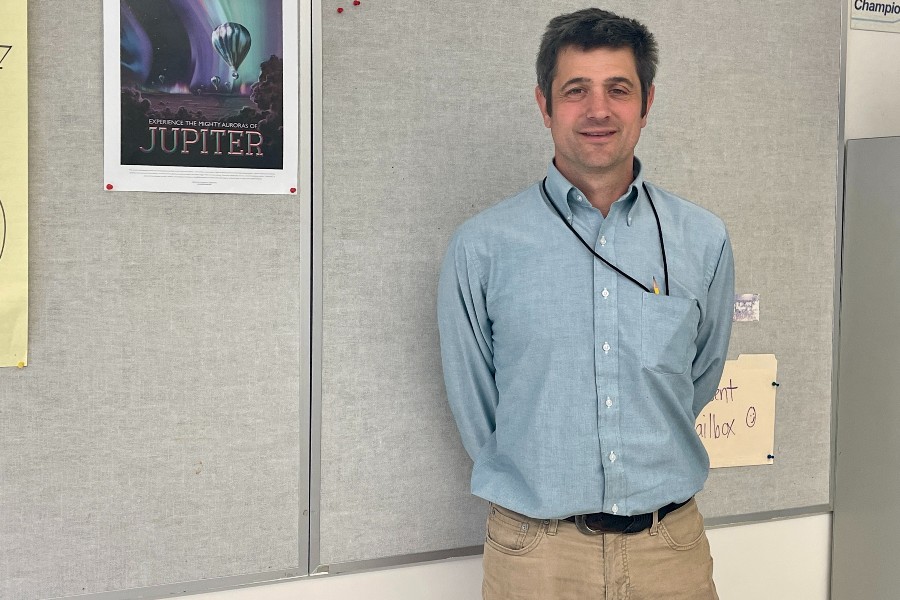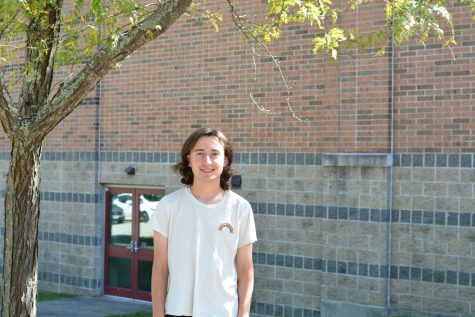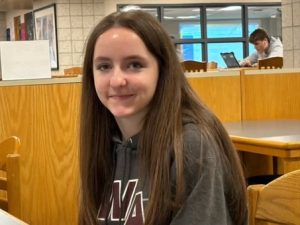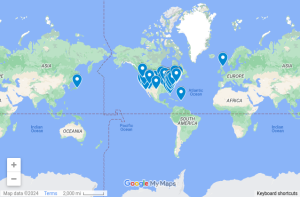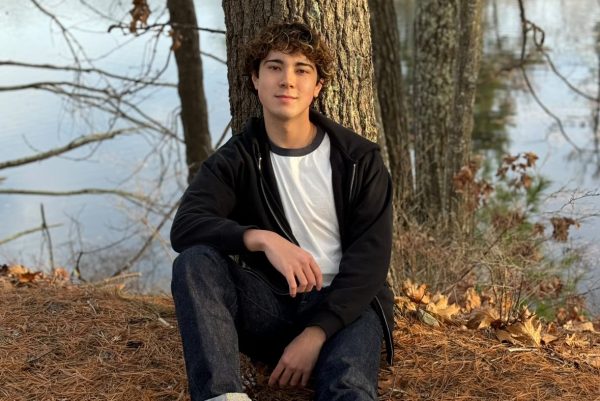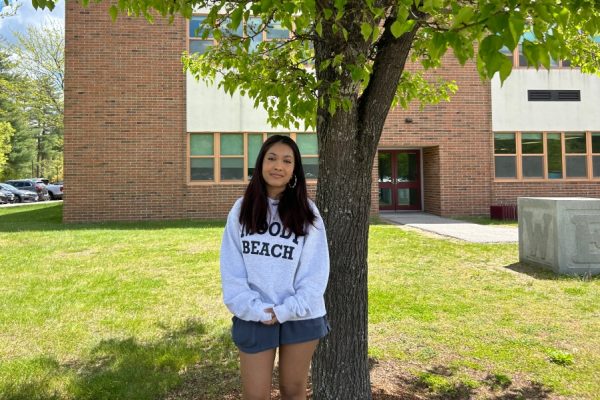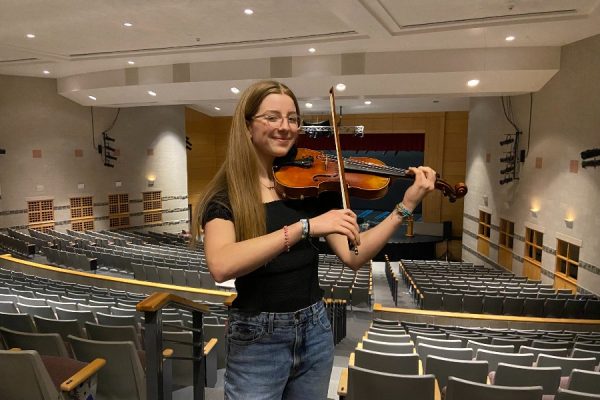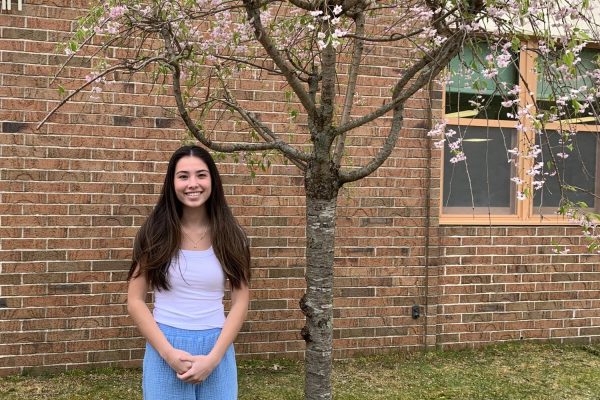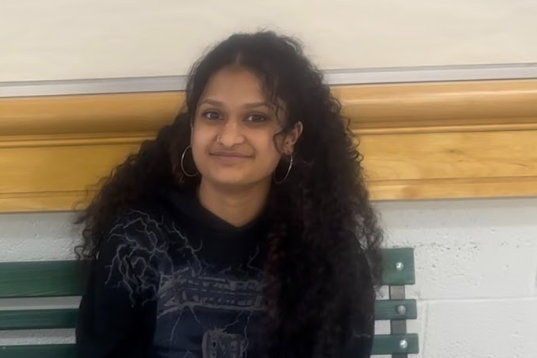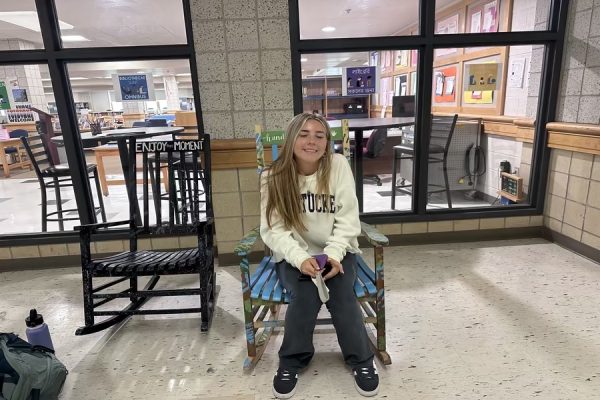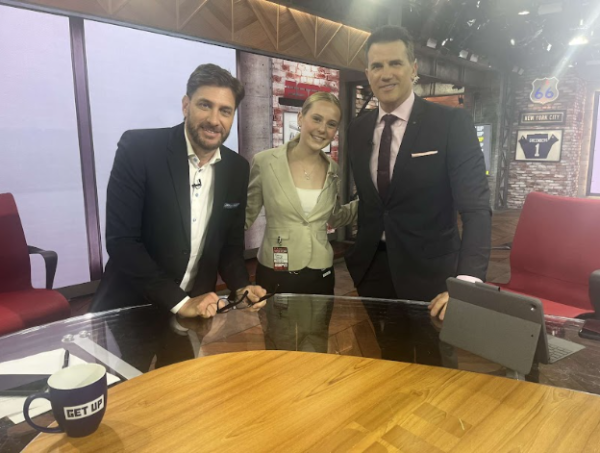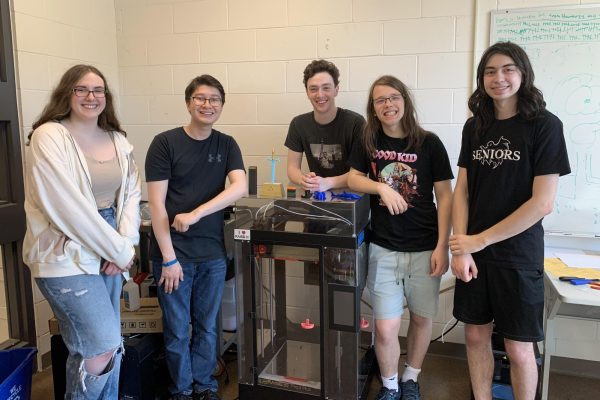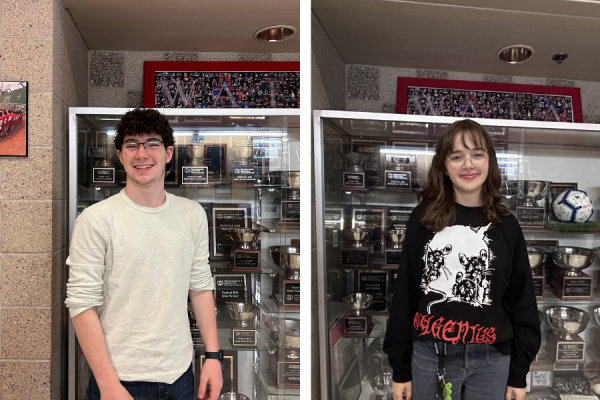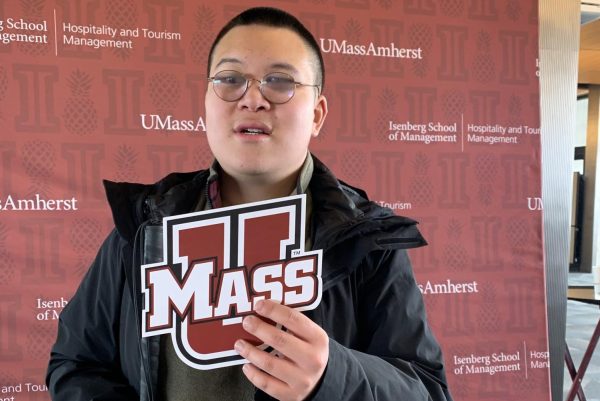New math teacher Ned Greene excited to bring a fresh perspective to the classroom
Ned Greene posing near the bulletin boards in his classroom.
October 27, 2022
After spending the past few years observing classes and student teaching around the state of Massachusetts, math teacher Ned Greene has become one of the newest members of the Westford Academy staff.
Q: How has your first month at Westford Academy been?
A: It was equal parts hectic, but also thrilling. I did a fair amount of theater in high school and college, and it reminded me a little bit of that opening performance or the last dress rehearsal where nothing’s going to be perfect at all but “the show must go on” type of thing. I didn’t really have any planning for lessons as much. There’s even a couple shared files and folders that I’m still dealing with trying to get, but I really, really enjoyed it and I think I made the right choice in coming here than the other schools that offered positions.
Q: What made you choose Westford over other options you had?
A: Commute is certainly one of them. One of the places I was considering would have been an extra hour and, […] adding an extra half hour each way can’t be taken for granted. I live in Maynard, MA, so technically two towns away [from Westford] I do go through Boxborough and Littleton to get here, but it’s really not that far as the crow flies.
Q: What else made you choose Westford Academy as the place to continue your teaching career?
A: I noticed immediately that, just from the posters on the wall, that it was a little bit more welcoming and open. The front foyer and [bell lobby] might have been older, but it was really, really nice to me. I went to design school as well, so I pay attention to these things and I found the posters on the wall seemed like things that had been up for years. The community was a little more my vibe.
Q: What got you into teaching and math education in particular?
A: Both of my dad’s parents were teachers and my mother was a teacher, so I’ve grown up with people who really valued education and made careers out of it. Then, in my sophomore year of high school, my Algebra II teacher went away and I actually taught the class for a couple of weeks, and I really enjoyed that. I went into design and the arts after undergraduate school, but then one thing led to another and I ended up teaching a woodshop afterschool program with first, second, third, and fourth graders. I loved it and I realized I could make a living doing that.
Q: What math classes do you teach here?
A: I teach four sections of Geometry and one section of Algebra I.
Q: Do you have a preference of which subject to teach?
A: Geometry for sure. I mean, I like the Algebra I freshmen students, but Geometry connects with my design school past and during the class I probably incorporate more drawing, sketching, and making constructions than some of the other geometry teachers.
Q: In this first month of school, what has been your favorite part of teaching?
A: When students get excited. That’s where the Algebra I class comes in; they get excited about a lot of that material.
Q: What has been the hardest aspect so far?
A: Time management and prioritizing between creating and fine-tuning lessons as well as doing administration stuff that has to be completed. There are hard deadlines there, whereas for lesson plans, you don’t really have the basic structure but you can decide to do a worksheet here then figure out a group activity there. Prioritizing how perfect the lesson have to be versus what I have to do for deadlines is hard.
Q: How has Westford Academy been different from your prior teacher experiences?
A: This is my first real month as a high school teacher. I did observations in January of 2020 and student teaching from fall of 2021 through last spring. Here, there is a time management aspect to it, but truth be told, my student teaching for geometry was quite similar. The level of students has been a bit higher here, so I have been able to cover more stuff. Things I would plan on covering in three days at other schools is two days here, so that means the pace allows you to be faster.
Q: What has been the most valuable thing you’ve learned while being at WA so far?
A: In terms of teaching, I’ve already gotten a little better at picking up when I need to slow down and when I can speed up. I look at blank stares and think if those blank stares are because they don’t get it or if they do get it and they’re bored; it’s not obvious. I’ve also learned that the math department is very supportive, almost to a fault.
Q: Is there anything else you would like to tell the Ghostwriter’s readers?
A: There’s more to life than just math, I was once a guest lecturer at Tufts University on the history of punk rock and I honestly think people should be taught about everything from punk rock to algebra, but math is absolutely a part of life. If anyone wants to go down any sort of design or architectural path, having the basis of math is often needed.

